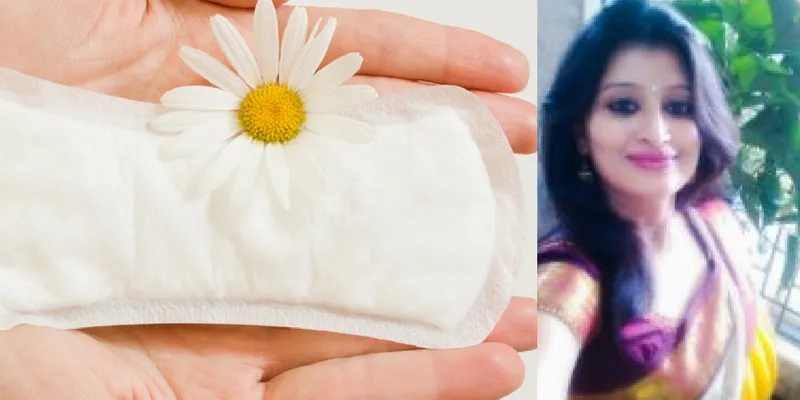Ecofriendly system for disposing sanitary napkins, courtesy of Bengaluru woman Nisha Nazre
In India, getting to use disposable sanitary napkins is still a luxury as the majority — 209 million — don't have access to them. As these pads are stain-free and long-lasting, women find them to be the most convenient option. However, inadvertently, the practice of using sanitary napkins contributes towards environmental problems as these napkins are non-compostable. Due to this, every month more than a billion of these pads make their way into sewerage and landfills.

Read More: How disposable sanitary napkins are harmful to both women and the environment
Nisha Nazre, a social worker based out of Bengaluru, has been working on a system that will help dispose used sanitary napkins in a way that does not cause pollution. The inception to this idea came up when Nisha was giving her waste pads to a rag picker and he refused to touch them as he was observing certain religious rituals that day. Such customs and taboos even extend till a point where menstruating women cannot go into the kitchens, prayer rooms, or touch any utensils.
Disturbed by the widespread superstitions that centre around menstruation along with the environmental hazard, three years later, Nisha came up with a model for an incinerator wherein the used sanitary napkins can be dumped into a paper bag. According to a report by The News Minute, the incinerator works in multiple chambers. In one of the chambers, water is used to weigh down the smoke produced from burning the pads, ensuring that there isn’t a foul smell or pollution. The machine comes in two variants – a basic model which will cost around Rs 1 lakh and a high-end one which will cost around Rs 2.5 lakh. However, the prices have not been fixed yet. Nisha says that the incinerator can dispose at least 20 pads at once in a 10 to 12 minute cycle.
Nisha's company Zuci Fem Care Pvt Ltd, has demoed to the Municipal body of Bengaluru city which is yet to approve the model after seeking recommendation from Karnataka State Pollution Control Board. Sarfaraz Khan, Special Commissioner, Bruhat Bengaluru Mahanagara Palike (BBMP), told The Deccan Herald,
Educating the public on segregation is vital because most of the times the sanitary pads are clubbed with the dry waste and they don't reach the incinerators.
Talking about the end-goal, Nisha told The News Minute,
Ultimately, I just want to do my bit for the environment and society.
Do you have an interesting story to share? Please write to us at [email protected]. To stay updated with more positive news, please connect with us on Facebook and Twitter.







